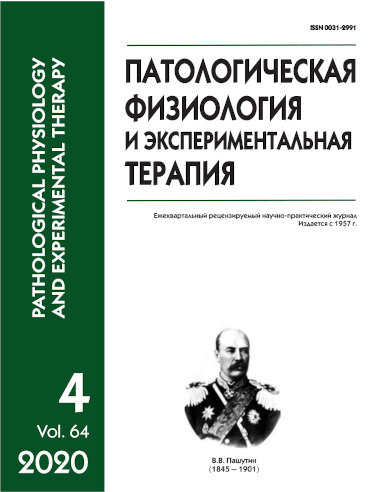Analysis of anticancer effect of endostatin on oral squamous cell carcinoma based on results of experimental studies
DOI:
https://doi.org/10.25557/0031-2991.2020.04.134-139Keywords:
endostatin, oral squamous cell carcinoma, neoangiogenesis, metastasisAbstract
The main reason for cancer-associated mortality in patients with oral squamous cell carcinoma is metastatic spread to regional lymph nodes. It is known that the processes of malignant growth and metastasis are highly dependent on blood supply to the primary cancerous focus. The development of malignancy is accompanied by failure of the normally well-balanced system of angiogenesis regulation with prevalence of proangiogenic factors over inhibitors. Therefore, the use of angiogenic inhibitors is a pathophysiologically justified method aimed at suppression of cancer progression. This review presents reports of experimental studies on the role of endostatin, a natural inhibitor of angiogenesis, in processes of tumour shrinkage in squamous cell carcinoma of the maxillofacial region. The authors analysed pathogenic mechanisms of the anticancer effects exhibited by endostatin in preclinical models of oral malignancy. Endostatin can be regarded as a potential antitumor agent for the treatment of oral squamous cell carcinoma.Downloads
Published
2020-11-26
Issue
Section
Reviews
How to Cite
[1]
2020. Analysis of anticancer effect of endostatin on oral squamous cell carcinoma based on results of experimental studies. Patologicheskaya Fiziologiya i Eksperimental’naya Terapiya (Pathological physiology and experimental therapy). 64, 4 (Nov. 2020), 134–139. DOI:https://doi.org/10.25557/0031-2991.2020.04.134-139.






